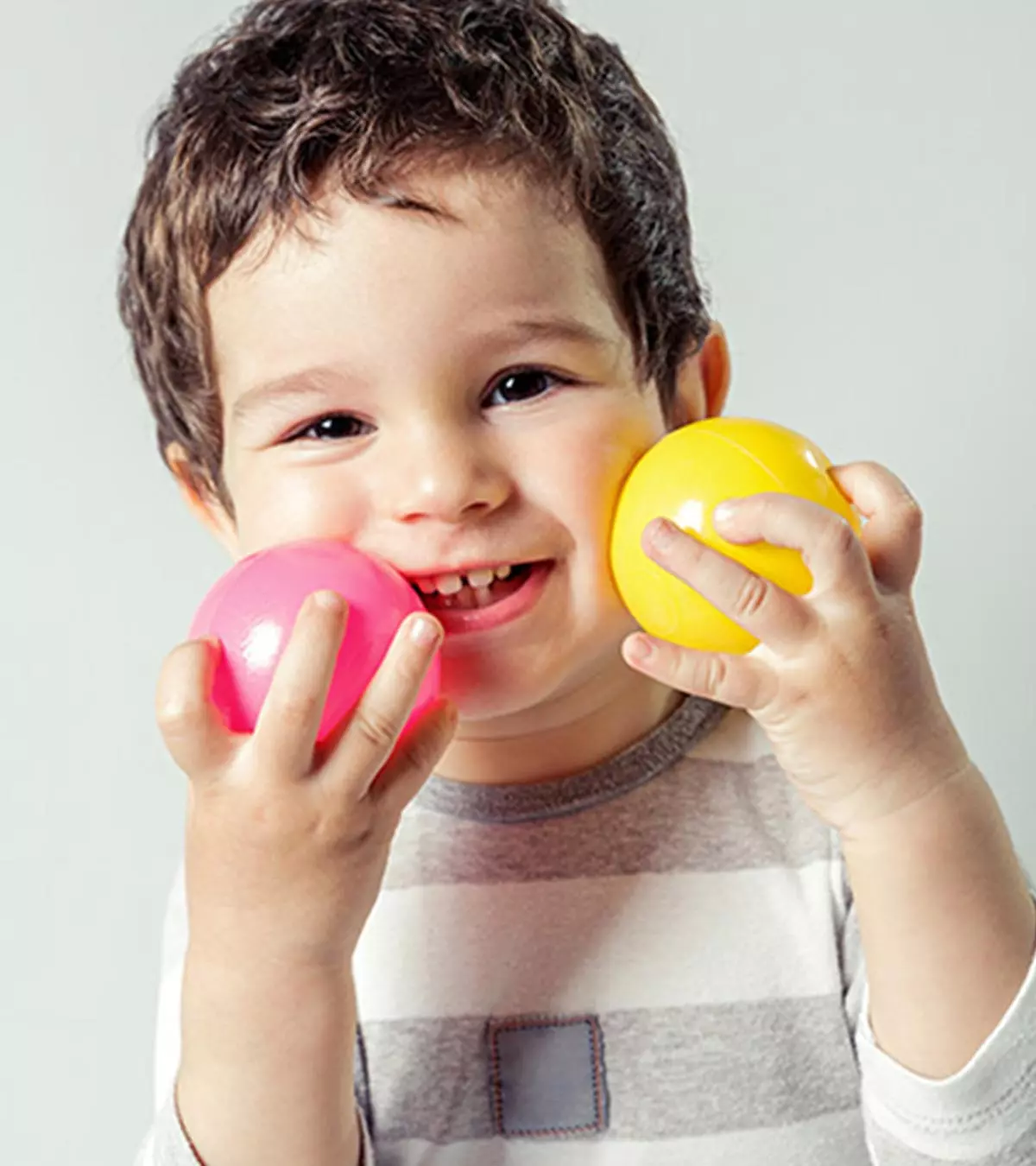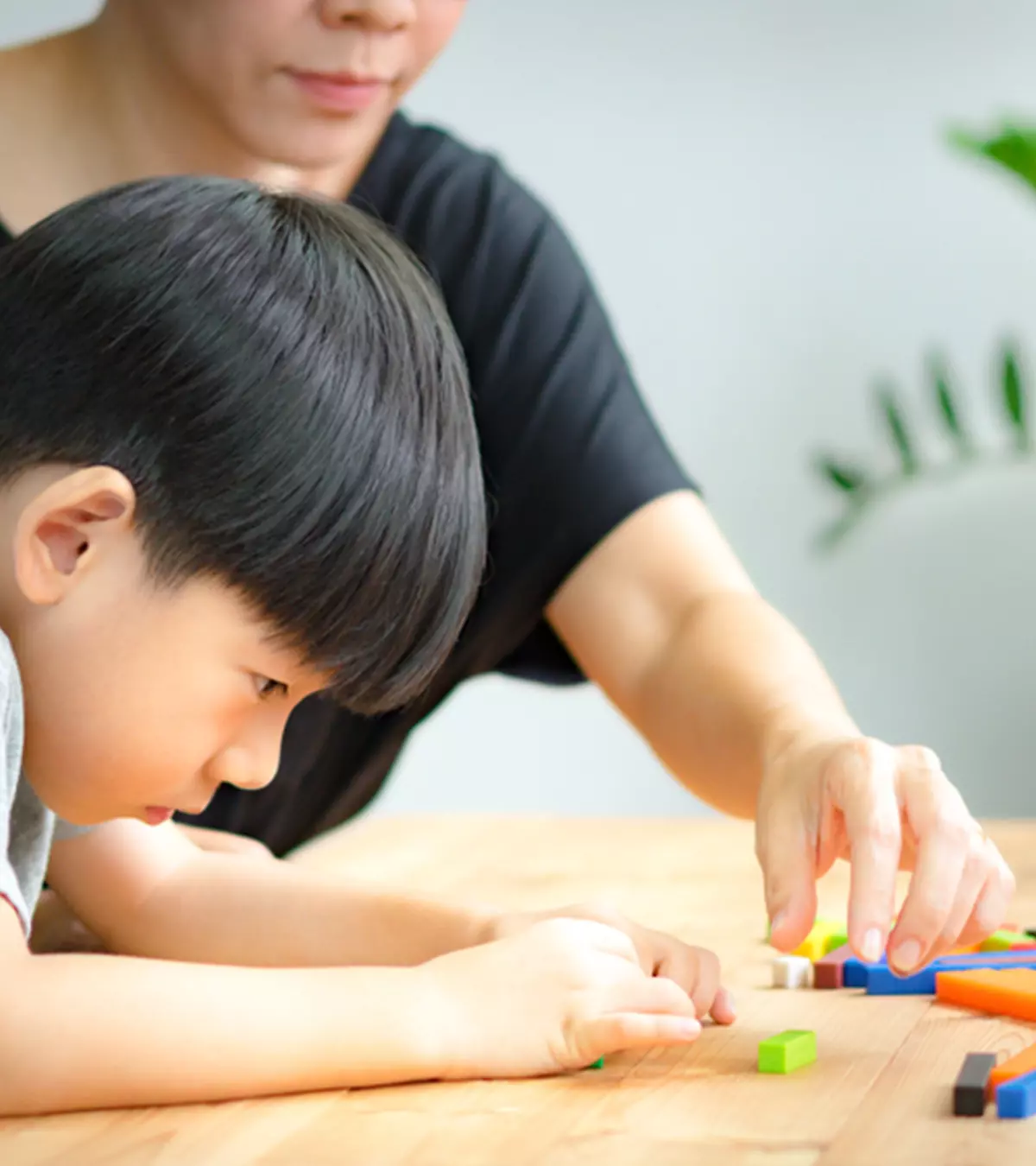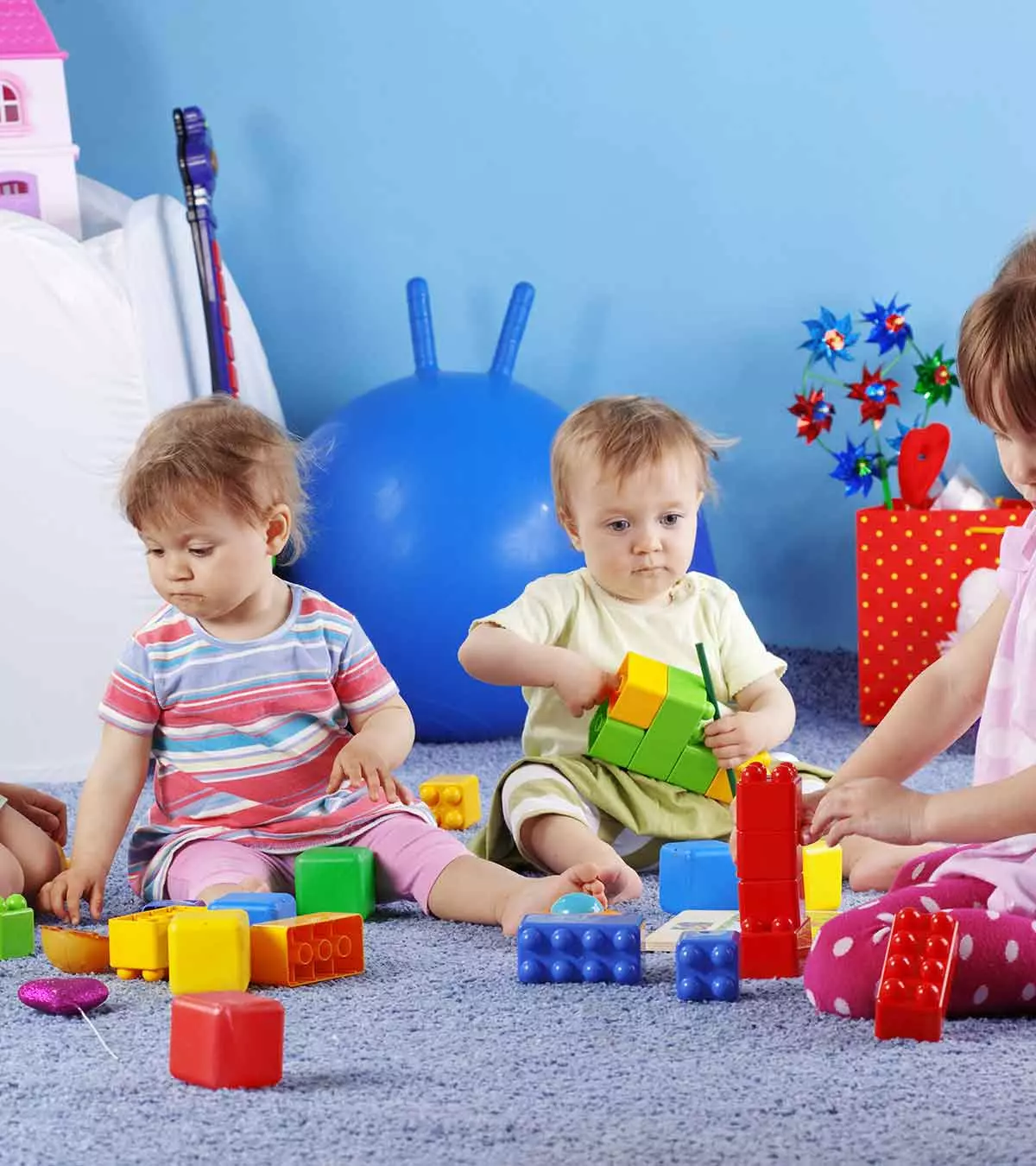
Image: ShutterStock
Children go through different developmental stages as they grow into adults. It is no different when it comes to emotional development, and children’s social and emotional development proceeds in phases. These are two of the most important milestones in determining a child’s future perspectives.

A child’s social interaction is influenced by several factors, including the surrounding environment and the type of people they get exposed to. Similarly, for them to grow emotionally strong, they need to be taught to control and understand their emotions. These skills should be inculcated in them as they go through the different years of childhood (1). Therefore knowing the distinctive social and emotional characteristics of different ages is important for parents (2).
Read through as we provide you with information about children’s emotional and social growth.
Key Pointers
- Children’s growth and development depend on crucial aspects such as emotional and social development.
- Following instructions and cooperation fall under social development, while managing emotions and understanding them come under emotional development.
- From socializing and smiling to developing individuality and confidence, social and emotional development stages vary.
- Developing healthy social and emotional skills are necessary for children to nurture relationships, regulate their behavior, and control emotions.
- Consistency, responsiveness, and setting rules for discipline are ways through which parents can assist in their children’s skill development.
Definition Of Emotional Development In Children
Emotional learning begins at a young age and the learning grows with age.
In infancy, infants express their feelings through non-verbal communication and depend on caregivers to recognize their cues. Their expressions are related to their ability to regulate their emotions.
Emotional expression is closely related to both social and cultural influences of family and the surroundings. A child’s relationship with the caretaker gives it the ability to express both positive and negative emotions in a socially and culturally acceptable manner (1) (3).
From Baby To Adulthood: Overview Of The Stages Of Social Emotional Development In Children
The development of social and emotional skillsiThe capacity for self-awareness, understanding, and self-regulation of emotions, as well as for constructive interaction with others. is extremely important for your kid (4).
- It helps them behave in an appropriate way later, gives a good understanding of the life they live, and helps them gain control during the transition stage to reach adulthood.
- Social and emotional development helps a kid to shape his future. This allows him to decide his ambitions while having proper control over his emotions.
- Development of social skillsiThe capacity to effectively engage in conversation and communicate to create and maintain social relationships. allows a child to cooperate and play with peers, pay attention to the instructions offered by parents or teachers and obtain good transition while indulging in one activity or another.
- Development of emotional skills allows your child to undergo a learning process (emotional literacy) which would educate him about the ways he can understand and control emotions.
The social and emotional development of a child is categorized into different phases to help parents determine which stage your child is in now. You must look out for the following milestones in your child to know how well he or she has developed so far (5).
1. Emotional Development From 0-6 Months
Babies begin to learn many things in an active way almost from birth. They learn about the people in their homes and about themselves. During this age, your baby would:
- Look at the hands or suck their fingers.
- Try to look at you when they are touched.
- Gain an understanding about their hands and legs.

- Realize that they are different from the rest.
- Begin to learn that they need the comfort of adults and love being soothed.
- Enjoy socializing and smile at you.
- Respond to your touch.
Social interaction is an important factor to be considered during the 3 to 6 months stage
. If your baby is between 3 to 6 months, they would (6):
- Respond to you when you call their name.
- Smile or laugh when you make some noises.
- Love to play peek-a-boo.
2. Emotional Development From 6 Months -1 Year
As your baby grows, he would begin to show liking toward family members and better social-emotional awareness. If you have babies who are aged between 6 months to 9 months, lookout for signs of social and emotional development such as (7):
- Expressing a variety of emotions like happiness, anger, sadness and fearfulness.
- Will be able to differentiate between strangers, family and others.
- Exhibits frustration when you take a toy away from his hand.
- Shows response to the words or gestures you do.
Sarah Dussault, a mother of three from New Zealand, talks about the emotional and social milestones that her son Tommy achieved at six months of age. She says, “He is a chatterbox some days and quiet others. He isn’t shy with smiles but he is very particular about his giggles. He just started to get upset when people leave… Lately, Tommy is just a very squirmy guy. He’s still smiley but he no longer wants to cuddle with me. Flying with him right now is terrifying. Even bringing him to lunch has lost its appeal. Sure he can sit in a high chair but he doesn’t want to sit still. I know this too will change quickly (i).”
During the 9 months to 1 year of age stage, your baby tends to become very social, performs certain actions like elders, and becomes a bit responsible. Self-regulation is an important factor to be considered at this stage. By now, your baby would be able to:
- Holds a cup while drinking from it.
- Imitates simple actions.
- Try to eat by himself by putting small pieces of food in his mouth.
- Show anxiety when separated from you.
3. Emotional Development From 1-2 Years
When your kid is within this age group, he will tend to spend a lot of time gaining social awareness, exploring things around him, observing people at home and also developing a sense of self-awareness. By this age, your kid can:
- Recognize their reflection in the mirror.
- Take the initiative while playing.
- Imitate the actions of adults.
- Play separately.
- Try to help you.
- Put toys away after playing.
- Show negative emotions such as frustration or anger.
- Be self-assertive and would try to direct you to perform a few actions.
4. Emotional Development From 2-3 Years
This is known as the toddler stage when your kid would become very creative and would have loads of confidence in all his actions. After your child is 2 years old, he will begin to:
- Be aware of whether he is a boy or girl.
- Try to put the dress on and remove it on his own.
- Show his tastes while wearing dresses, eating food, choosing toys and playing games.

- Learn to say no to your requests .
- Develops socialization skills, enjoys the company of other kids, and likes to play with them.
- Show a strong sense of attachment towards the toys he/she owns.
- Use various objects to play.
- Have frequent mood swings and may lack social-emotional stability.
5. Emotional Development From 3-4 Years
Your 3-year-old toddler would be able to perform various activities physically which would improve his self-confidence and self-perception levels. It will also help him become very independent during this stage. From 3 years of age, your kid would be able to:
- Follow the directions you give him.
- Perform a few activities without any assistance.
- Begin to share the toys with siblings or friends.
- Engage in self-expression, create new game ideas, and invite friends to join, showcasing social competence and cognition.
- Become much interested in pretend play.
 Did you know?
Did you know?6. Emotional Development From 4-6 Years
When your child is four years old, they will begin to gain awareness about their individuality. Their interest in physical activities will help develop their motor skillsiThe ability to control and coordinate body movements such as walking, running, and moving hands and fingers. and reasoning skillsiA child’s capacity for logical and critical thinking, connection-making, and problem-solving. , Twhich can help them achieve good levels of confidence and feel proud of themself. At this age, your kid would try to (8):
- Differentiate between good behavior and bad behavior.
- Create friendships with other kids.
- Indulge in the idea of self-identity and make a comparison between himself and the rest.
- Try to understand others’ feelings, showcasing social-emotional intelligence.
- Enjoy an imaginative game that is a bit dramatic with other kids.
- Like to be involved in competitive games.
- Try to lead a group of friends while playing.
- Cooperate with other people with empathy.
- Follow instructions correctly.
- Show interest in creative drawing.
7. Emotional Development From 7-12 Years
This stage is known as the age of going to school. This stage would make your kid experience lots of emotional outbursts and learn a number of skills such as (9):
- Blend well with peers.
- Follow rules well.
- Follow a well-structured play style with rules.
- Form a team in a formal way.
- Show interest in learning major subjects like maths, social studies, etc.
- Have a self-disciplined approach while learning.
- Take the initiative to do some activities.
- Feel pride when bestowed with new responsibilities.
 Experts say
Experts say8. Emotional Development From 12-20 Years
This is the stage of psychological crisis, as your child would experience lots of confusion about his gender, the opposite gender, and will face other issues related to the teenage stage. During this adolescent stage, your kid would (10) (11):
- Learn to answer your questions in a satisfactory manner.
- Become more self-aware.
- Face some role identity issues.
- Rebellious nature surfaces when confronted with an issue, possibly leading to a decline in social-emotional competence.
- Have many doubts about themself.
- Become self-conscious about appearance.
- Seek true intimacy.
- Prefer to be isolated.
- Look out for a long-lasting, genuine friendship that provides him with social-emotional support.

As a parent, making a note of this social and emotional development among your kid in each stage is important. It helps in the development and well-being of your child.
Factors That Influence Social And Emotional Development In Children
First, it is important for you to remember that the development of each child is unique and complex. There might be slight or huge differences in the social and emotional development of your child, as it is associated with a number of factors. Many factors affect the way children express their social and emotional competencies. Some of them are (3):
- Some similarities are found between the emotional development of parents and children. These are the hereditary factors.
- As your child develops mentally, she also develops emotional maturity. Psychologists say that the child’s emotions depend upon her maturity level.
- John B. Watson, an American psychologist, has stated that children learn from conditioning. An experiment was conducted on a nine-month-old baby, who was shown a rat to the child and a lot of noise was made in the background. Later it was observed that the baby started crying by merely looking at the rat (12). Likewise, if there is an expression of physical love in the family, the baby also expresses her love by contact, kisses, or hugs.
- Likewise, if there is an expression of physical love in the family, the baby also expresses her love by contact, kisses, or hugs.
- Children who have sound health can control their emotions in a better way while those who remain weak show irritability, excitement and unstable emotions.
- Intelligent children are also emotionally stable. Those with low intelligence are low in stability as well (13).
- Relations in the family and the way they express their emotions affect the emotional development of a child. If the parents have stability in their behavior, express their feelings in a balanced manner, and display emotional awareness, the children also follow in their footsteps. Modeling good behavior is much more important than just talking about good behavior. Children are watching everything you do as a parent.
- If parents are violent, children also adopt the same. If you over pamper your children, there are chances for them to become indiscipline and obstinate. On the contrary, if you do not show any affection, they become introverted and submissive.
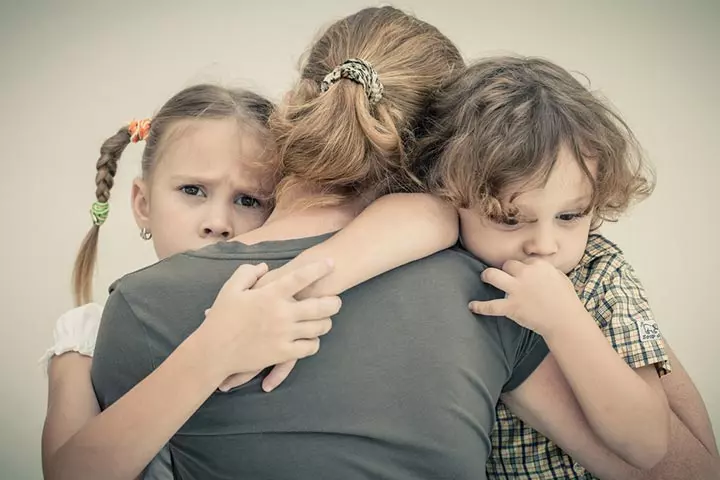
- Just like family, society, too, influences a child’s emotional development. If the environment is emotionally charged, the child becomes emotionally unstable. If people are stable and have control over their emotions, the child also remains so. They learn to control their emotions and try to conform to socially acceptable behavior. Therefore, a child’s emotional development also becomes a shared social responsibility.
- The family’s socioeconomic status can also influence a child’s socio-emotional development. Children who have access to quality education, safer neighborhoods, and healthcare may have better emotional and social growth.
- Positive school experiences and educational settings with good staff and peers also play a major role in the development of social and emotional skills in children.
- Managing overall social-emotional well-being for sound physical and mental health is necessary. When your child is emotionally charged, several changes, like a change in pulse rate, blood circulation, stretching of eyes, an effect on the digestive system, and more, occur in the body.
Why Is Social Development In Children Important?
Your kids need to develop healthy social and emotional skills. It is very important you help them do so, as it would help them to (4):
- Nurture relationships
- Master the qualities of initiating, discovering, learning, and playing
- Create attention and persistence
- Control and regulate their behavior
- Develop control over their emotions
- Have better mental health as adults
- Develop effective communication skills
How To Enhance Social and Emotional Skills?
Social and emotional development in early childhood is most essential for your kids to know that they can trust you and be dependent on you completely (1) (14).
- This feeling can be created only by you. Stay consistent and be responsive toward your kids. Help them gain an understanding of social-emotional management.
- Remember to place some rules to discipline your kids as they grow bigger.
- When your child realizes what you expect from him or learns what would happen if the rules are not followed or broken, they would learn that being orderly is the right thing to do.
- This would also offer your kid a good sense of self-control.
- To help your kids develop social and emotional skills, you have to create the opportunity to let your kids play with others. You can do this by taking them to a park, enrolling them in a playschool, helping them to learn about their abilities, and helping them in expressing their feelings well.
- You can also try to offer limited options to help your child make their own decisions regarding simple everyday things like what they need for dinner, which color dress they wish to wear, etc.
- These choices would help your kids to form their own decisions and offer them greater levels of confidence.
- In a social environment, your kids must be able to express their feelings with the right kind of emotions and in the right way. Environmental factors affecting child development play a significant role in shaping how children learn to manage and express their emotions.
- If you feel that your kid is highly emotional or jealous, motivate your child to talk about what they feel without throwing any temper tantrums.
- This would help your kid to refrain from any emotional outbreak and maintain social-emotional stability during such occasions; this, in turn, can prevent them from causing harm to others.
- Sometimes, when kids don’t have control over their emotions, they tend to hit or yell at their friends or younger siblings.
- During such occasions, you need to tell them it is unacceptable and suggest an alternate or appropriate approach to social-emotional expression.
- Another important thing you need to remember as a parent is to never shout or yell at your kids. You also need to refrain from doing so at anyone in front of your kids, as they might tend to follow your actions.
- This can influence the social and emotional development of your kid and would impact their character and overall social-emotional health as they grow.
 Do remember
Do rememberEssential Points To Remember About Your Kids
Your baby tends to start relationships with the members around him from the time of birth. The process of development, such as controlling the emotions or behaving properly might take a few years to develop.
- Social-emotional learning and development in children tend to continue until they reach their final teenage years.
- This is why you will notice a difference in your kids while they are sharing things, taking turns, or making friends as they grow.
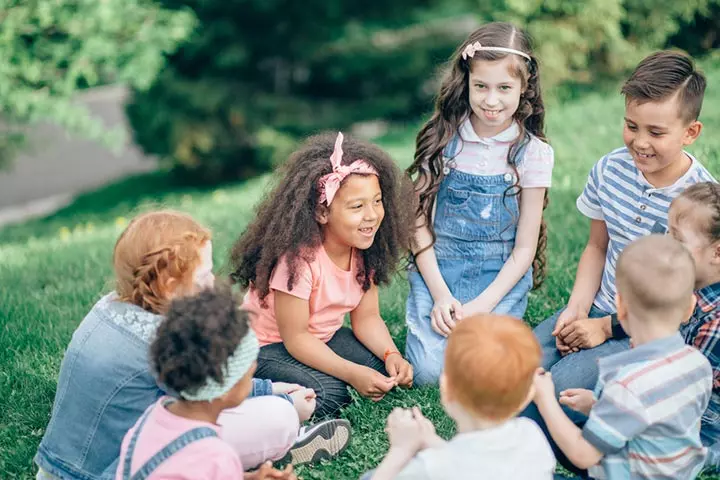
- The emotional view of development allows your kid to understand or control his or her internal emotions. The social aspect of development helps balance the external elements like interacting with family and friends.
- As a responsible parent, you need to know which social and emotional skills your kids lack right from birth to support their social and emotional intelligence as they grow.
- Also, each child is different, and so is their pace of development. Therefore, understand your child’s needs and provide support based on their developmental stage.
Frequently Asked Questions
1. What strategies can parents use to help children manage their anger?
By teaching children emotional regulation strategies to recognize their anger, modeling appropriate anger expression and management, and problem-solving techniques, parents can help children attain emotional stability.
2. What are the signs of social and emotional problems in children?
If a child shows signs of anxiety, withdrawal from social situations, increased anger issues, and frequent mood swings, it might signify that they are dealing with emotional or social problems.
3. How does social media impact children’s social and emotional development?
Excessive exposure of children to social media might lead to anxiety, loneliness, decreased self-esteem, and problems related to communication and relationships.
4. How can schools support children’s social and emotional development?
Schools can support emotional and social development in children by creating a safe and welcoming environment for the students, providing counseling services, and giving children a chance to voice their concerns and make their own decision, schools can help in supporting a child’s socio-emotional development.
5. What are some common social and emotional issues that children may face?
Children might face social and emotional issues, including anxiety, disruptive behavior, difficulty making friends or maintaining relationships, and ADHD.
Practicing good emotional development enables a child to create lasting friendships and boost self-confidence. Note that children’s emotional and social development varies with their age. Understanding the child’s emotional stages and the factors that influence them could help you nurture their relationships in the right direction. This development begins from infancy and toddlerhood, maturing as the child grows older. Remember that each child is different and develops at their own pace. Parents can help them progress towards their growth by engaging in good practices daily.
Infographic: Factors Affecting The Social And Emotional Development Of Children
Many factors influence how children acquire emotional skills and become socially adept. You can understand and support your child’s social and emotional health by learning about the factors that affect it. Scroll through the infographic below to learn about them.
Some thing wrong with infographic shortcode. please verify shortcode syntaxIllustration: Factors That Influence Emotional Development In Children

Image: Stable Diffusion/MomJunction Design Team
Children’s social-emotional development entails the steady acquisition of abilities in navigating interpersonal interactions, expressing emotions, and forming meaningful connections with others.
Personal Experience: Source
MomJunction articles include first-hand experiences to provide you with better insights through real-life narratives. Here are the sources of personal accounts referenced in this article.
i. My baby is 6 months old! Milestones + update.https://sarahfit.com/6month-old-baby-milestones/
References
- Social Connection on Child Development, Children’s bureau.
https://www.allforkids.org/news/blog/social-connection-on-child-development/ - Parents’ views of early social and emotional development, UC Davis.
https://sedlpubs.faculty.ucdavis.edu/wp-content/uploads/sites/192/2015/03/NewtonThompson.pdf - Influences on Childrens Health, NIH.
https://www.ncbi.nlm.nih.gov/books/NBK92200/ - Social and emotional development in early learning settings, NCSL.
https://www.ncsl.org/human-services/social-and-emotional-development-in-early-learning-settings - Social and emotional milestones, Help me grow.
https://helpmegrowmn.org/HMG/DevelopMilestone/SocialEmotionalMilestones/index.html - Your baby’s developmental milestones at 6 months, UNICEF.
https://www.unicef.org/parenting/child-development/your-babys-developmental-milestones-6-months - Your baby’s developmental milestones at 9 months, UNICEF.
https://www.unicef.org/parenting/child-development/your-babys-developmental-milestones-9-months - Child development 4-5 years, Government od Western Australia, Department of Health.
https://www.healthywa.wa.gov.au/Articles/A_E/Child-development-4-5-years - Positive Parenting Tips: Middle Childhood (9–11 years old); CDC
https://www.cdc.gov/child-development/positive-parenting-tips/middle-childhood-9-11-years-old.html?CDC_AAref_Val=https://www.cdc.gov/ncbddd/childdevelopment/positiveparenting/middle2.html - Growth and development, ages 13 to 17- what parents need to know, Advocates for youth.
https://www.advocatesforyouth.org/resources/health-information/parents-16/ - Growth and development, ages 18 and over- what parents need to know, Advocates for youth.
https://www.advocatesforyouth.org/resources/health-information/parents-17/ - Little Albert Experiment, Wikipedia.
https://en.wikipedia.org/wiki/Little_Albert_experiment - How to cultivate the emotional intelligence in children, UNICEF.
https://www.unicef.org/romania/stories/how-cultivate-emotional-intelligence-children - Understanding the stages of emotional development in children, Rasmussen University.
https://www.rasmussen.edu/degrees/education/blog/stages-of-emotional-development/ - Emotional Development, Child Care Technical Assistance Network.
https://childcareta.acf.hhs.gov/infant-toddler-resource-guide/infanttoddler-care-providers/emotional-development/expressing - Positive Parenting Tips: Middle Childhood (6–8 years old); CDC
https://www.cdc.gov/child-development/positive-parenting-tips/middle-childhood-6-8-years.html?CDC_AAref_Val=https://www.cdc.gov/ncbddd/childdevelopment/positiveparenting/middle.html - Consequences of Child Abuse and Neglect
https://www.ncbi.nlm.nih.gov/books/NBK195987/
Community Experiences
Join the conversation and become a part of our nurturing community! Share your stories, experiences, and insights to connect with fellow parents.
Read full bio of Dr. Misha Yajnik
Read full bio of Harshita Makvana
Read full bio of Deepa Thomas
Read full bio of Apoorva K













